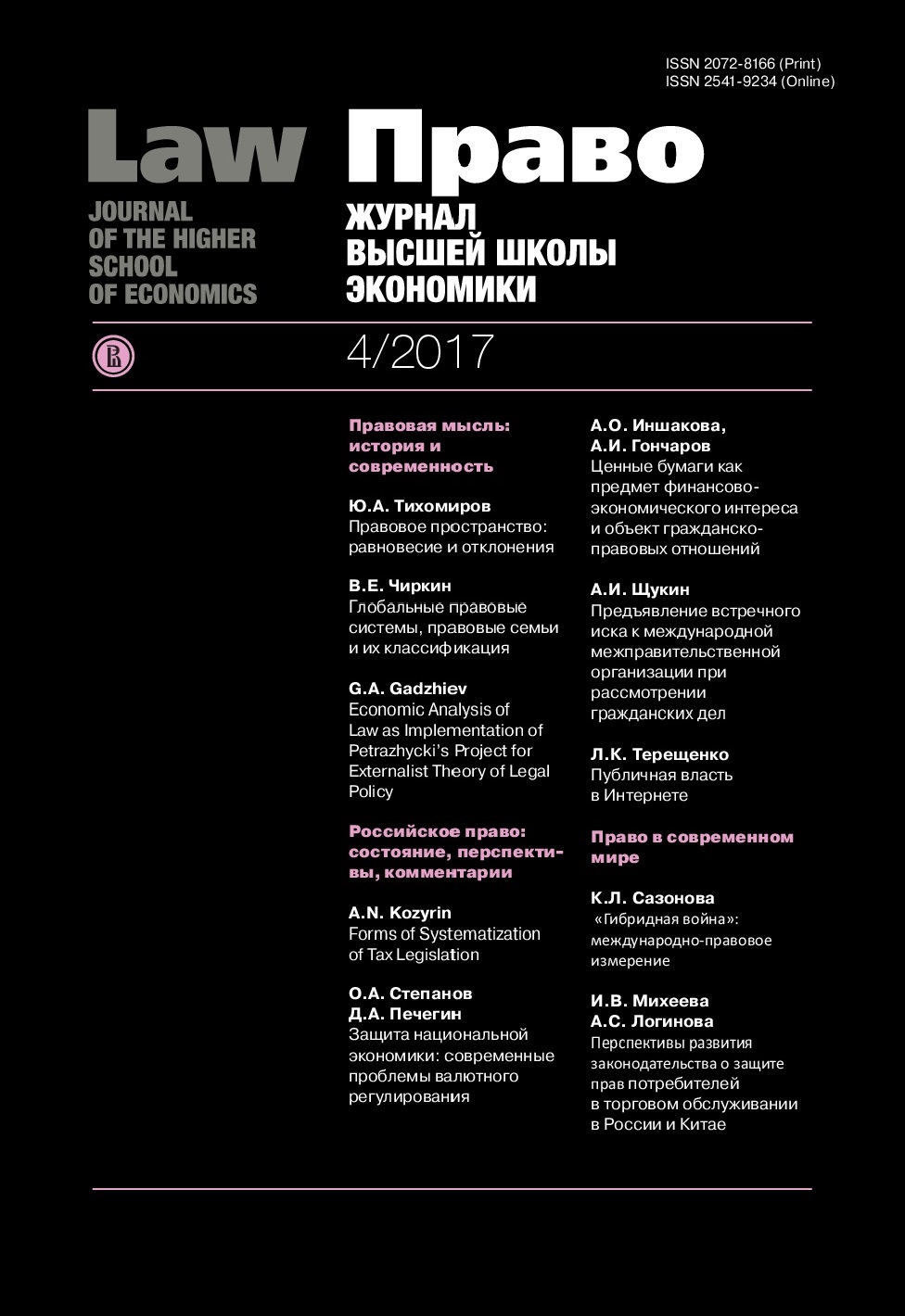The Gaps in Legal Systems:A Deontic Assesment
Abstract
From logical point of view, it is worth discussing problem of legal gaps that is very important in the analysis of legal systems.The article belows contributes to the the analisys of so-called legal gaps from the perspective of deontic logic. In the beginning of the paper, after discussing certain properties of legal systems — completeness, consistency and contingency — on the basis of analytical methodology of legal positivism based on Dworkin-Hart’s debate about closure rules, in is describing different types of closure rules, which are employed for closing the legal systems. The paper compares the similarities and differences between different approaches to the studies of legal gaps. It is found that similarities between logical modalities and types of legalism makes possible to extend analysis of closure rules by introducing deontic modalities; the article explores the perspectives of such analysis. We introduce logical principles underlying two main types of legalism — Anglo-Saxon and continential ones. Drawning upon the basic principles of modal logic, we briefly sketch the prior history, development and current state of studies in the field of deontic logic. The paper suggests that it should be possible to develop a deontic assessement of the closure rules in legal systems; the first goal of the paper is achieved by spelling out differences between deontic modalities in open and closed legal systems.The final section of the paper is dedicated to analysis of deontic modalities employed for generating such closure rules.
Published
2017-03-02
How to Cite
VerenichV. (2017). The Gaps in Legal Systems:A Deontic Assesment. Law Journal of the Higher School of Economics, (4), 59-72. https://doi.org/10.17323/2072-8166.2017.4.59.72
Issue
Section
Legal Thought: History and Modernity


















